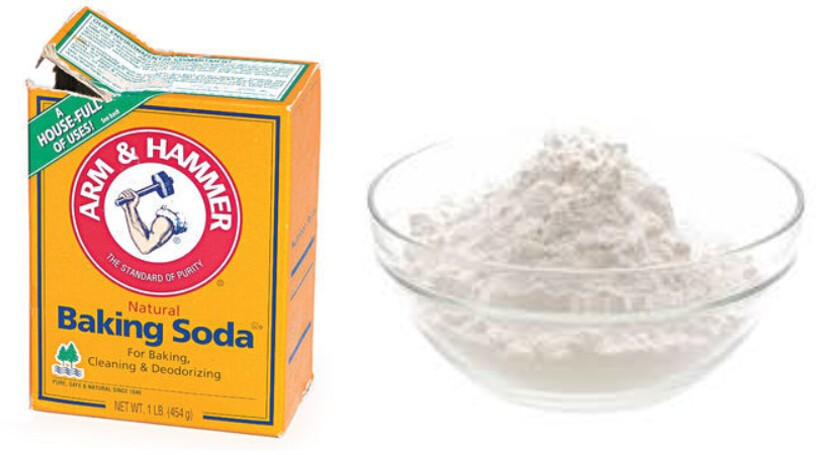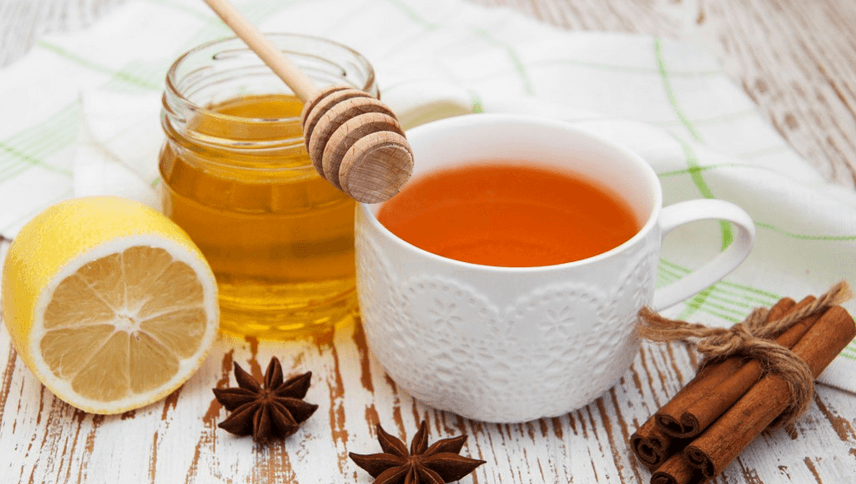Do you suffer from a sore throat? This condition is not a disease but a symptom. Sore throat is usually caused by a cold, bacteria, or viral infection but can also result from fatigue, smoking, nasopharyngitis, an allergic reaction, or prolonged exposure to dry air.
The common symptoms of a sore throat include redness, ear pain, difficulty swallowing, a feeling of a lump in the throat, hoarseness, swollen lymph nodes, and pain or burning. The burning sensation, the irritation, and the pain sometimes make it difficult to talk. This article will discuss the 20 most effective natural remedies to cure your sore throat at home!

Common Symptoms of a Sore Throat
The symptoms of sore throats may vary due to different causes. However, there are some common symptoms of a sore throat.
- Fever, headache, nausea, vomiting, and body pain.
- A cough, nasal obstruction, runny nose, and sneezing.
- Extreme fatigue, difficulty in swallowing and talking.
- Swelling of the throat and hoarseness.
10 Common Causes of a Sore Throat
1. Viral Infections
Viral infections, such as the common cold or influenza, are the leading causes of sore throat. These infections are highly contagious and typically spread through respiratory droplets. The viruses attack the throat, causing inflammation and discomfort. It is important to rest, stay hydrated, and consider over-the-counter pain relievers to relieve the symptoms.
2. Bacterial Infections
Bacterial infections, such as strep throat, can also result in a sore throat. Unlike viral infections, bacterial infections require specific antibiotic treatment to eliminate the bacteria and alleviate the symptoms. If you suspect a bacterial infection, it is crucial to consult a healthcare professional for proper diagnosis and treatment.
3. Allergies
Allergies to environmental factors, such as pollen, dust mites, or pet dander, can trigger a sore throat. The immune system reacts to these allergens, leading to inflammation in the throat. Managing allergies through avoidance of triggers, antihistamines, and nasal sprays can help reduce throat discomfort.
4. Dry Air
Dry air, especially in arid climates or during winter months, can cause throat dryness and irritation. This can lead to a sore throat and discomfort. Using a humidifier to add moisture to the air or staying hydrated by drinking plenty of fluids can alleviate symptoms caused by dry air.
5. Acid Reflux
Gastroesophageal reflux disease (GERD) or acid reflux can cause stomach acid to flow back into the throat, resulting in irritation and a sore throat. Managing acid reflux through lifestyle changes, such as avoiding trigger foods and maintaining a healthy weight, can help reduce the occurrence of sore throats.
6. Smoking
Smoking cigarettes or exposure to secondhand smoke can irritate the throat and lead to chronic soreness. Quitting smoking and avoiding smoke-filled environments are crucial steps toward relieving the symptoms and improving overall throat health.
7. Vocal Strain
Excessive use or strain on the vocal cords can cause a sore throat. This is common among singers, public speakers, and individuals who frequently raise their voices. Resting the voice, staying hydrated, and practicing vocal warm-ups can help prevent and alleviate the discomfort associated with vocal strain.
8. Tonsillitis
Tonsillitis, an inflammation of the tonsils usually caused by a viral or bacterial infection, can result in a sore throat. Symptoms may include swollen tonsils, difficulty swallowing, and fever. Treatment may involve rest, pain relievers, and surgical removal of the tonsils in severe cases.
9. Postnasal Drip
Postnasal drip occurs when excessive mucus accumulates at the back of the throat, leading to irritation and soreness. This can be caused by allergies, sinus infections, or colds. Over-the-counter decongestants, nasal irrigation, and staying hydrated can help alleviate postnasal drip and associated sore throat symptoms.
10. Mouth Breathing
Breathing through the mouth instead of the nose can cause throat dryness and irritation, leading to a sore throat. Addressing the underlying causes of mouth breathing, such as nasal congestion or deviated septum, and practicing proper breathing techniques can help prevent and alleviate throat discomfort.

20 Natural Remedies to Get Rid of a Sore Throat
1. Gargle with saltwater
This proven home remedy can help soothe an itchy and sore throat. Salt is a mild antiseptic that helps soften the throat and flush out viruses from the back of the throat, tonsils, and adenoids. In addition, gargling with salt water can help reduce swelling and neutralizes acids in the throat.
You need to dissolve 1 teaspoon of salt in an 8-ounce glass of hot water and gargle with this solution for 10 to 20 seconds. Make sure to spit the mixture on, do not swallow. Repeat at least 4 or 5 times a day until relief is felt.
2. Gargle with baking soda

You can also rinse your mouth with baking soda solution. Baking soda has antibacterial and antitussive properties that can help cure sore throats. In addition, baking soda is a natural alkaline product that balances the acidic environment in the mouth.
Mix ½ teaspoon of baking soda and an 8-ounce glass of water. Mix thoroughly and gargle 2-3 times a day for two days.
3. Steam
Steam can provide warm, moist air that helps reduce inflammation in the tissues of your throat. For dryness in your throat, this treatment is especially effective. You can use a steam shower or a classic hot water bowl. Both will help soothe a sore throat.
Add hot water to a bowl and place it on a flat surface. You can also add 1 drop of eucalyptus oil to increase the effect.
- Lean on the bowl and ensure your nose and throat can get steam from the water. Do not let your face near the bowl; otherwise, the hot steam will burn your face.
- Cover your face with a towel to prevent steam from escaping.
- Stay for about 5-10 minutes, and then remove the towel. Repeat this process after a few seconds of rest. You can do this 3-4 times a day.
4. Apple Cider Vinegar
Apple cider vinegar is an excellent natural expectorant that helps loosen phlegm to relieve sore throats. Moreover, ACV can also be a natural immune-stimulating agent that helps prevent sore throats caused by viral and bacterial diseases. In addition, the acidity that balances the pH levels of your throat environment makes it hostile for microbes to live.
Add 1 tablespoon of apple cider vinegar and 1 tablespoon of honey to a cup of hot water. Mix well and drink this solution 2-3 times a day. You can also add 1 teaspoon of cider vinegar to a glass of water and gargle several times daily.
5. Honey

Honey has antibacterial and antitussive properties that can help accelerate the healing of a sore throat, swelling, and inflamed tissue. Multiple studies have shown that honey can effectively relieve sore throat and cough. In addition, Honey can help extract water from inflamed tissue, reducing swelling and pain.
You can add 2 teaspoons of honey to a cup of hot water and drink. You can also add 2 teaspoons of honey and the juice of half a freshly squeezed lemon into a cup of hot water. Mix well and have it.
6. Honeysuckle
Honeysuckle is a traditional Chinese medicine that can effectively treat sore throat. The leaves and flowers of Honeysuckle have antibacterial properties that can help remove sore throats, coughs, and other signs of the flu. In addition, it has anti-inflammatory properties that reduce inflammation of the tissue in the throat.
To make Honeysuckle tea, you can use fresh honeysuckle or dried herbs. Add 2 cups of fresh honeysuckle flowers or leaves to 4-5 cups of water. Boil for about 10-15 minutes.
Alternately, you can add 1 tablespoon of dehydrated honeysuckle to 1 cup of hot water for about 10 minutes. Add 1 teaspoon of honey or 1 teaspoon of lemon juice. Then drink this tea after filtering.
7. Ginger
Ginger has antifungal and antibacterial properties that can help reduce the swelling of the throat tissues. Moreover, it is a natural analgesic that reduces sore throat. In addition, it is an expectorant that can loosen phlegm and mucus.
- Boil water in a saucepan and add the ginger.
- Simmer for 10-15 minutes, and add 1-2 teaspoons of Honey. Mix well and drink this ginger tea.
8. Pomegranates
Pomegranates have excellent astringent properties that help to reduce swelling. In addition, it has anti-inflammatory properties that help reduce the redness and pain in your throat. Also, it is a natural antioxidant that makes this fruit a treasure for health!
Gargling with pomegranate juice can help soothe a sore throat. You can also make pomegranate tea for more health benefits.
- Prepare a pomegranate and get the rinds.
- Pour water into the pot and heat it to boiling point.
- Add pomegranate zest and continue to boil for several minutes.
- Simmer for 10-15 minutes and drink or use this tea to gargle.
9. Sage grass
Sage grass is among the most effective treatments for sore throats. It has astringent properties that can help reduces inflammation. The phenolic acids in the sage grass have antibacterial and antiseptic properties that can soothe a sore throat.
- Put 2 tablespoons of fresh sage leaves or 1 tablespoon of dried sage leaves in a cup. Pour boiling water and dip for 10-15 minutes.
- Filter the tea and add 1 teaspoon of honey and 1 teaspoon of lemon. Mix well and drink this tea. You can also gargle with this tea.
10. Vitamin C
Vitamin C is a water-soluble vitamin and is safe to take every day. It can help strengthen the immune system and heal inflamed throat tissue. Whether your sore throat is caused by a cold, flu, or sore throat, this vitamin can help reduce inflammation and relieve the pain of the throat.
Take a supplement at least three times a day for a sore throat. You can place it in a glass of water and gargle.
11. Lemon

This is a natural and effective remedy for sore throat. Lemon is rich in vitamin C, which can help reduce inflammation. In addition, its acidic nature makes your throat hostile to the development of bacteria.
Add 1 teaspoon of freshly squeezed lemon juice to a cup of hot water and drink this juice 2-3 times daily.
12. Moisten the air in the house
You can install a humidifier in your room. The moist air will prevent the drying of your throat. If you don’t have a humidifier, you can put a water bowl on the bedside every night.
13. Quit smoking and avoid second-hand smoke
Cigarette smoke is very irritating to the throat and can cause itching, swelling, and pain in the throat. In addition, it also has a great deal of damage to the lungs.
If you smoke, try to stop smoking. If you don’t smoke, you’re better off avoiding exposure to second-hand smoke.
14. Breathing with your nose
The mucous membranes in the nasal cavity can effectively moisten the air inhaling the lungs and improve your sore throat.
You only need to breathe through the nose instead of breathing through your mouth.
15. Change your toothbrush
If your sore throat is recurrent, this may be caused by your toothbrush. Over time, bacteria will accumulate on the bristles of the brush. When you brush your teeth, the bacteria will enter your body through small wounds inflicted upon you while brushing and cause infection. At this time, you need to replace a new toothbrush.
16. Herbal teas
Herbal teas are perfect for relieving a sore throat. These herbs include sage, eucalyptus, licorice root, slippery elm, peppermint, marshmallow root, etc.
17. Spicy Teas
Spices such as ginger, cloves, cinnamon, and garlic have antibacterial and antifungal properties that help you fight germs. In addition, it can help loosen your phlegm to provide you with relief from pain and congestion.
18. Garlic
Garlic has strong antibacterial and antiseptic properties that can help fight infections. In addition, it can also enhance your immunity and fight colds.
19. Hot Soups
Hot soup does not only help relieve sore throat but also provides enough moisture to lubricate the vocal cords.
Chicken soup is the best remedy to soothe a sore throat. You can also add spices like garlic, ginger, cinnamon, or clove soups to eliminate inflammation and relieve pain.
20. Healthy lifestyle
A healthy lifestyle, such as getting enough sleep and a varied and balanced diet, can help boost your immunity.
- You should eat more garlic, ginger, shiitake mushrooms, fruits, and vegetables rich in antioxidants.
- Drink at least 2 liters of fluid a day to soothe your throat. In addition, herbal teas can also help relieve pain.
- Fatigue and nervousness can cause a sore throat. If you suffer from this condition, you better take a break.
Frequently Asked Questions
1. Can allergies cause a sore throat?
Yes, allergies can cause a sore throat. When you are exposed to allergens like pollen or pet dander, your immune system reacts, leading to inflammation and irritation in the throat.
2. How long does a viral sore throat last?
The duration of a viral sore throat varies depending on the specific virus and individual factors. Typically, a viral sore throat resolves within a week to ten days.
3. Do I need antibiotics for a sore throat?
Most sore throats are caused by viral infections and do not require antibiotics. However, antibiotics may be necessary if your sore throat is caused by a bacterial infection, such as strep throat.
4. How can I prevent sore throats?
To prevent sore throats, practice good hygiene, such as washing your hands regularly, avoiding close contact with sick individuals, and maintaining a healthy lifestyle with proper nutrition, hydration, and rest.
5. When should I see a doctor for a sore throat?
You should see a doctor if your sore throat persists for more than a week, is accompanied by severe pain or difficulty swallowing, or if you have recurrent or persistent sore throats.






